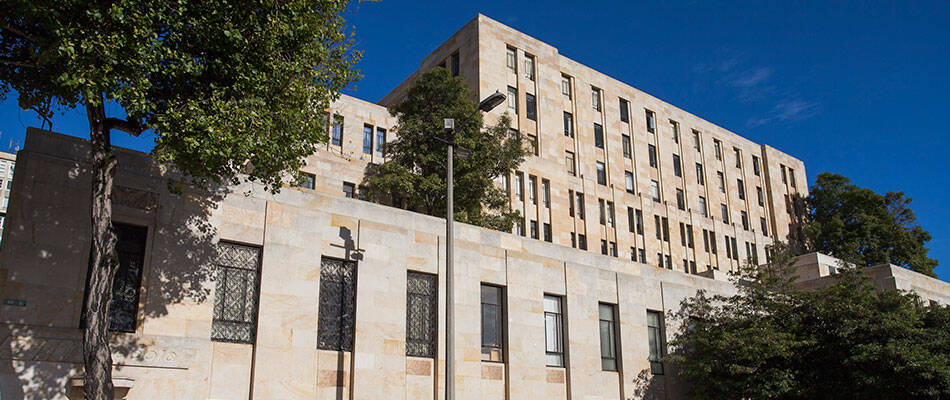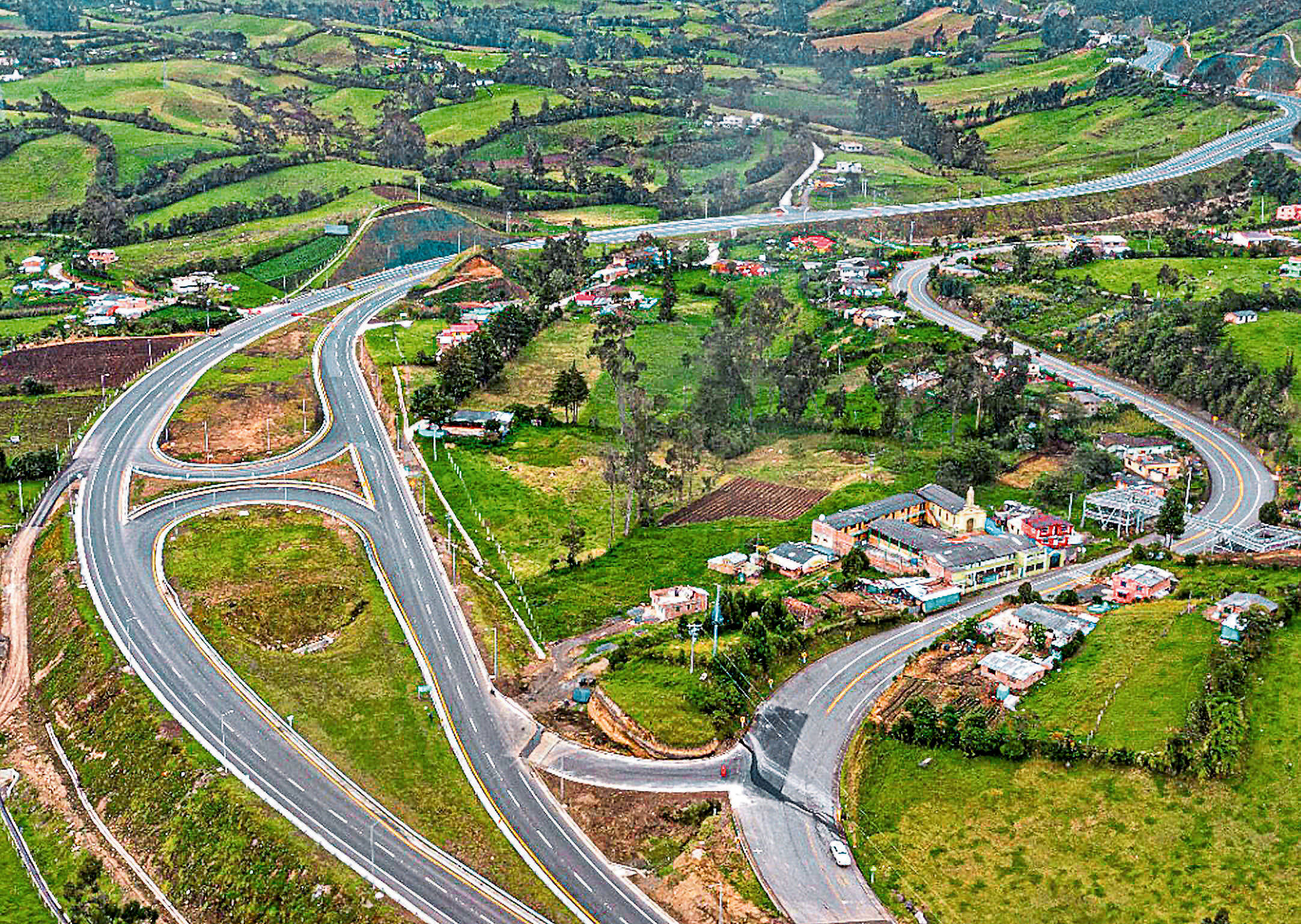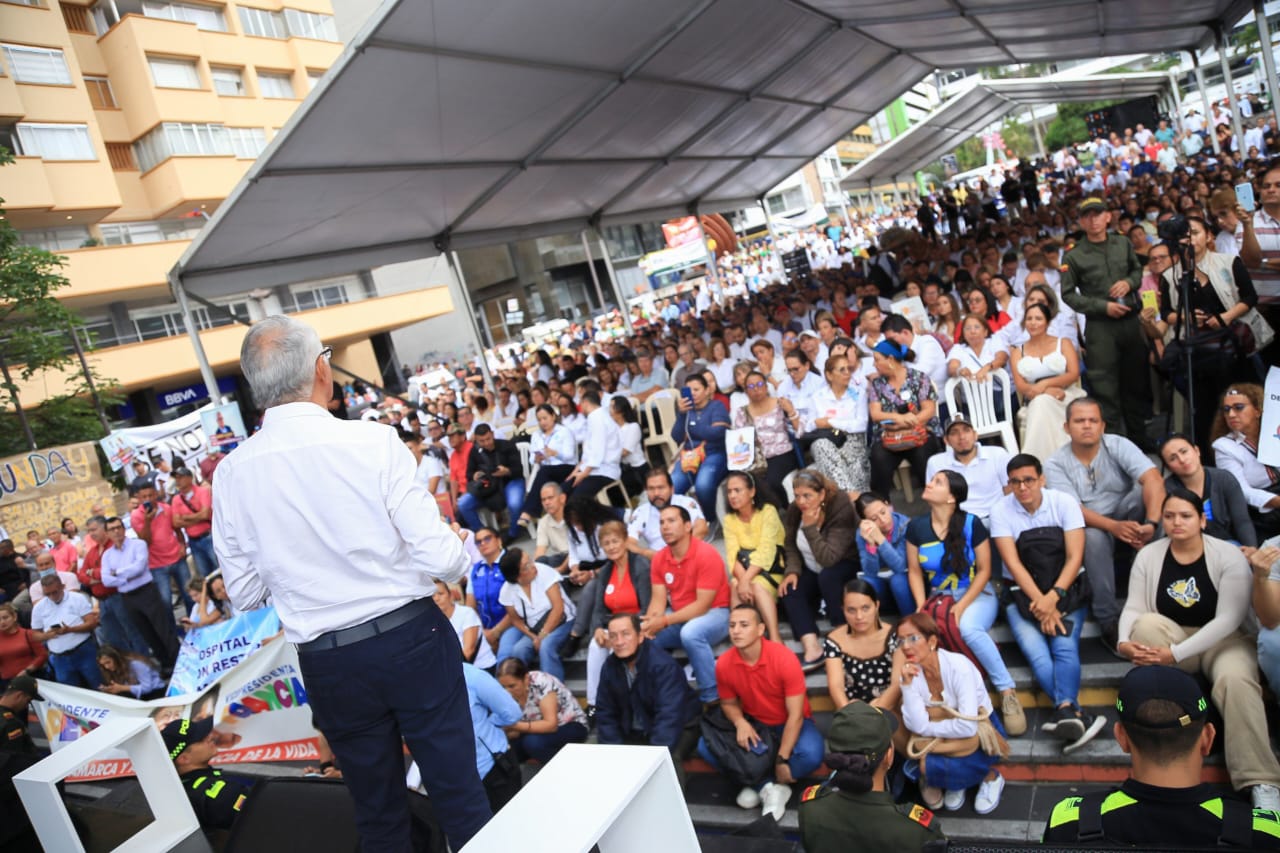'There's no environment in Congress for a new tax system': Interview with Lidio García, President of the Senate

In conversation with EL TIEMPO, during the forum 'The wealth of the nation: where is it produced, who manages it and what is it invested in?', organized by the National Federation of Departments (FND) and this Publishing House, the president of the Senate, Lidio García , warned about the climate of political polarization and the "major" challenge that the Congress of the Republic faces in the discussion of the General Budget of 2026 .
In addition to his concerns about underfunding, the parliamentarian also addressed the concentration of operating expenses. García also called for respect between branches of government and greater coordination with the regions, and expressed skepticism about a new tax reform in a year marked by the country's presidential elections.
What do you think will happen with next year's budget, given that the previous one was rejected in Congress, but the government pushed it through via decree? Could it be rejected or the amount adjusted? Congress receives the annual budget, this one amounting to 556.9 billion pesos. I have already authorized the joint economic committees to begin a broad, nationally-oriented discussion.
If we talk about the political issue and the polarization that the country has, and above all, the usual democratic arena, which is Congress, we see that tempers are quite heated and that we are on the verge of elections that involve a confrontation not only ideological but budgetary, because it means handing over the largest budget in the history of Colombia. We will see what happens in the discussion of the committees that have the first say in adjusting what needs to be adjusted for the country, which is the one that needs to define where and how the resources will be invested.
What we've seen is that this is a government that isn't adept at budget execution, and if we analyze the previous budget, experts say 97 billion pesos were not spent last year, although the Ministry of Finance says it's 19 billion. So, that's where the legislative question really arises: if the government didn't spend the money, why are they asking for more? Why was a bill presented with an imbalance of 26.3 billion pesos? Furthermore, this gap is often tied to a new tax reform, which is an unpopular maneuver given the criticism. This discussion is going to be extremely tough, and we hope the government can secure the green light so that it isn't approved by decree, as the law allows.

Main headquarters of the Ministry of Finance and Public Credit, in the historic center of Bogotá. Photo: Private archive
The responsible thing to do is to adjust it in the economic committees and have the country see this discussion. There's no atmosphere for this. Congressional and presidential elections are approaching, and a tax reform is the most unpopular bill there is, and at election time, it's the first thing criticized because it means imposing more taxes on Colombians, and we can't stand it any longer. Even government blocs have asked me not to introduce this reform; it would be politically very costly. I don't see the political climate for a new tax reform, and I say this without fear of being wrong because I feel it will cost a lot of political capital. I think the fault lies with presenting an underfunded budget, and that's what brought us here.
If there isn't a tax reform and the budget adjustments some experts are talking about, amounting to up to 40 billion pesos, what could happen? We must build a broad agreement on priorities and efficiency, in support of what the country needs. It's undoubtedly not about whether there are good political relations. It's about focusing on what the country really needs and where resources will be spent, because this government hasn't been a good executor of investment. When talking to the President, you sense that he has good intentions, and in his rhetoric and speeches, one sees a different country than the one we see. That may be true, he may be right, but what we saw in other governments were presidents cutting ribbons on important projects in each region and across the country, and we don't see that in this government.
Hopefully, the project will be completed successfully, but there's less than a year left, and that's what Colombia needs; we're ready to support them. If what they want to do is genuine, even though there's no time left, we expect the major projects the country is waiting for, but which, for now, are still unseen, to be completed in the next eleven months.

First section between Rumichaca and Pasto, one of the 4G projects. Photo: Courtesy of Ani
At the beginning of my presidency, I called for respect, independence, and autonomy of branches of government. I called for good relations between the legislative and executive branches. We don't want another war on social media, because that's not good for the country and that's what's leading Colombia to the situation we're in. We have to maintain a good relationship, even if we're not ideologically aligned or in the same place. The President told me that he hasn't been approved laws that other presidents have. I, for my part, consulted with the economic committees to find out what they were thinking, and the idea is to conduct a comprehensive and serious study that will allow investment to come to the regions.
Specifically, what is your take on the regional impact of the project, because sectors like Housing, City, and Territory are in red. What is your perspective on this? It's painful to see what's happening. I've been to 18 departments and I see a disconnect with mayors and governors. There's talk of decentralization, but there's total rejection. The National Government isn't committed to it through territorial entities, and I see that we're moving toward a recentralization of decisions and resources. And on top of that, there's a proposal to raise territorial taxes, as is the case with tobacco and liquor, which represent nearly 41 percent of what territorial entities collect in Colombia. So it's painful because, in addition to not providing resources to the regions and increasing these taxes, there's also no good relationship like other governments have had.
Is the lack of coordination due to the fact that many local leaders are not from the governing party? That's the great political mistake. When you govern, you govern for those who voted and also for those who didn't. A department can't be punished because its governor thinks differently or belongs to a different party; in this case, it requires stature and vision of the state.
It's one thing to defend the public treasury, and another to ignore the fact that one is also the ruler of all citizens. There can be no pettiness in this; we must have a holistic vision of the state.

Rural families in the Bajo Cauca, Magdalena Medio, and Urabá regions of Antioquia. Photo: ANT
It makes me laugh and hurts to see the situation, because we've seen the need for these measures and for effective decentralization, but it's not visible. We're doing things backward, when we could have teammates like mayors and governors, so they themselves can help solve the problems that plague them. We're doing everything the other way around, and it's painful to see how everything is handled from Bogotá.
What about the promised law on powers and territorial autonomy? It would be wonderful, but it hasn't even reached Congress yet. This is a law that should harmonize 194 laws and address more than 11 responsibilities of ministries and entities attached to each of these portfolios, and it's a law the country needs. Legislative Act 03 of 2024 introduced changes to the distribution of responsibilities. The idea, as proposed, is to increase the General Participation System from 24 percent to 39.5 percent by 2037. This would give the regions greater autonomy and decision-making power, allowing them to allocate resources to address the challenges.
I'm ready to push for it when it arrives because this is a law the country yearns for and needs to be discussed and processed in the most peaceful and viable way for our nation. We can't be petty about it; we have to act sensibly and, above all, with the people's best interests at heart.
If the economic committees decide to make these cuts responsibly, which have been suggested and are required, where do you think this can be done? Everyone is talking about cuts, when they'll come, and we need to think carefully about how to do it. For example, in the case of the Department of Social Prosperity, the budget is being increased by 81 percent, and the Ministry of Equality is being cut by almost a trillion pesos. I don't know, then, why they created it.

The DPS's budget is being increased by 81%, and the Ministry of Equality is being cut by a billion. Photo: Ministry of Health and Social Protection
Well, that's what the government says, but not Congress. That increase in the case of the Department of Social Prosperity is 4.5 trillion pesos in cash, while in the case of the Ministry of Equality, the cut is 55.5 percent. If that's the case, we didn't need that ministry, so why did we create it?
One wonders, where are the austerity and spending cuts? Because an investment is made in a ministry and then it's taken away... So there's no clear direction for where the country or the administration is headed.
It's painful to see cuts being made in sectors where we Colombians expect growth, at least the 37 percent reduction in the Ministry of Sports. We Colombians have been moved by the triumphs of all these representatives and hope for investment in their training in whatever sport they pursue, but what they do is take away resources and then criticize these athletes for not bringing back to Colombia the medals they should have won. Compared to other countries, it's painful to see the state of that investment in Colombia.
Then there's the case of the health sector... I have a very personal view on this. I agreed with healthcare reform, but a concerted one that would allow for proposals from other political parties, experts, and citizens. We need to review the government's red lines on this matter and make decisions based on proposals.
How should this budget be addressed then? First, better execution and prioritization. Second, protect investment that impacts regions and citizens. And third, discuss it nationally: explain what is being cut, why, and what results are being sought. What cannot continue to grow unchecked is operating at the expense of investment. It's time to think about people, to have clear fiscal rules, better execution, and more investment where it's most needed, which is the regions.
eltiempo





